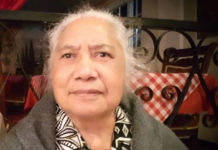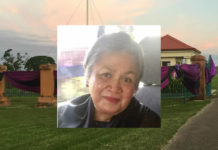By courtesy of: Â Todd Henry
Ever since my first visit to Tonga in 2007, I have noticed an ever growing population of American accented and often heavily tattooed residents that appear to have just arrived in the islands from places such as inner-city Los Angeles, Salt Lake City, San Francisco, or Dallas. Â In fact, these places are where many of them actually did come from before being sent back to Tonga as the result of their own criminal convictions.
These deportees make up a subculture of sorts within Tongan society, and the way of life they grew accustomed to in the United States, or other large industrialised nations, is in stark contrast to the way of life that is customary in the islands. Â The vast majority of deportees that I have met in Tonga were deported from the US, and while I have heard about some who were deported from places such as New Zealand or Australia, I have yet to meet them face to face. Â The fact that so many have been deported from the US when compared to other locations where large populations of the Tongan diaspora reside is both compelling and concerning at the same time.
Despite being born in Tonga, the deportees live almost as if they are exiles in their own land.  Many were raised in the US from a very young age after emigrating with their parents or other family members, and they may not have any recollection of life in Tonga before moving abroad.  Many of the deportees identify as being American, which they are in terms of their overall appearance and conduct, but not in terms of legality.  Their chances of ever being permitted back into the US are very slim, and those who realise this are generally able to at least partially integrate back into Tongan society through learning the language, culture, and utilising existing family connections.  Other deportees, however, choose to continue on the very path that got them sent back to Tonga in the first place, and inevitably find themselves in and out of the Tongan prison system as a result.
On my most recent trip to Tonga I met a man named Sione Ngaue. Â He is an American deportee who now resides on his family land in the village of Nukunuku on the island of Tongatapu. Â Despite his history, Sione is an example of a deportee success story. Â He has managed to start a new family back in Tonga, and he works as a freelance artist and tattooer, specialising in traditional Tongan designs.
I cycled out to Nukunuku from Nuku’alofa one afternoon to visit Sione in his traditional Tongan fale, which is one of the few left standing in Tonga. We talked at length about his own personal experience of being deported from the US, and about his new life in the Kingdom of Tonga.
The following is a transcript of our conversation recorded on July 14th, 2015:
Todd:Â What is your name and when did you get deported back to Tonga from the United States?
Sione: My name is Sione Kihe Kai Ngaue, and I got deported from America to Tonga in 2008.
Do you want to talk about why you got deported?
There were several things that led up to it, but in the end it was vehicular manslaughter.
What was the deportation process itself like? How did you first find out that you were going to be deported?
You usually know that you are going to be deported when you are like a year into the system, your prison term you pretty much know the warrants you have and things like that, you know you have an INS (Immigration and Naturalization Service) hold real early. So when you are doing your time you know that you’re going to get deported.
So you serve the whole sentence and then you go?
That’s the way it is. Everybody who gets deported has to serve their time in America before they are deported.
How does the process of actually being deported go, do officials actually escort you?
Yes, you get out of prison and when you come out the gates you have INS officers waiting for you, you know, with cuffs again. So you come out of cuffs, to get put on cuffs. You know, they take the state cuffs off, and the feds put their cuffs on you and put you in their bus. So you go through the process all over again with the INS, but the one thing good about INS is that you know the longest you’re going to be there is three months and you will be sent home.
So do they fly with you on the plane?
They have to escort you, they make sure. The judge tells you, “you will be escortedâ€. Especially if you have a heavy record. Some have a lesser record only get escorted by one (INS official), and some will even get escorted by three. I was escorted by two, my older brother was escorted by three.
When you land in the destination airport, do they just take the handcuffs off of you and you go?
There is no cuffs on the plane, it’s against federal law and international law. You just give them your word and they’re like “I’m taking you homeâ€, if you try anything you will go back to prison in the US and you will never get out. Behave and you will go home.
So when you land in Tonga, then do they have to release you over to the Tongan police?
No, if I wanted to I could have just walked off but I hung around the airport immigration for a minute and the guy told me that he saw me get off with those guys. Actually when we went through New Zealand they (the INS officials) bought me duty-free two bottles of whiskey and two cartons of cigarettes. Them guys, they were happy that I was a good guy, you know? I was happy to go home.
So did you have any family in Tonga when you arrived back after being deported?
I didn’t have a visitor for the thirteen and a half years I served, so I didn’t let anybody know that I was getting deported. I got out of the airport and I walked all the way home, my Mom was here, and my brother but they didn’t know. It was just all of a sudden, and here I am.
How old were you when you originally left Tonga for the US?
I left when I was four.
So in your mind you were American?
Yes.
What was it like essentially being an American by all accounts minus the legal side of things, and then having to integrate back into Tongan society? Was it a hard transition?
It wasn’t as hard for me as it is for some other deportees because I had family here already. I can speak for some of my deportee brothers and sisters who get sent down here, and who don’t have family. They have a harder transition. I had family here at the time when I got here.
Did you speak the Tongan language at that time?
Very little, very little. I could pass, just barely make it through. It wasn’t until I had been here for like six years that my Tongan really evolved.
Do you think that some of the deportees who are sent back try to continue with the gang lifestyle in Tonga that they left behind in the US?
Yes, a lot of them. Dozens. And they are now in the Tongan prison system, you know. Right out of the US system, and they didn’t learn. Coming with the same lifestyle from the US to Tonga, you can’t do that. Tonga is laid back slow man, you gotta go with it. You gotta go slow here.
How many deportees from the US would you estimate are here in Tonga?
Man…hundreds. I think there are over 400. I don’t think it’s reached the thousands, but when I was here there was like 300 or 400 from the US alone. That was six years ago.
Is there a reintegration program, or other support network for deportees when they arrive back in Tonga?
No, the worst part is that the ones that come from America, out of that system and they do long terms, you know ten years, 15 years. And they were taking some kind of psychological medication and then they sent them here to Tonga without it. When I came to Tonga, all I had was a picture ID, a passport. It was a piece of paper, that was my passport they brought me with. So I didn’t have any kind of medications or anything. A lot of these deportees, they’ve been on medication for all their lives and they get down here and just kind of let loose and that’s where they roam around going crazy. Tongan society ain’t gonna help them too much. People here won’t know what’s wrong with them to help them.
With all the deportees coming from the US who have essentially no support network in Tonga, are they essentially reforming the same gangs here?
It’s basically not like that anymore, I think it’s more like a of a single-man game. You know, you come down here, you start your little crew of three or four people and you do whatever you do to survive. Like I said before, they haven’t figured it out so a majority of them are in Tolitoli prison now.
I have been seeing TCG (Tongan Crips Gang) graffiti around, is that something that is currently active here?
It is, it is active in Tonga, but they really don’t know what they meaning of TCG is. You know, a lot of the local kids are getting involved in the painting and stuff on the wall but they don’t know the concept behind it for real. That’s the good part.
If you were given the opportunity, would you go back to the US tomorrow?
No, I wouldn’t. I would never go to the US, never again in my life do I want to see the US. I’m not angry, and I don’t have anything bad to say about it. I am the pilot of my own plane, you know. I have lived it, and I know America but I love Tonga. I love not having money and things like that, it makes me who I am and it’s no big deal.
Can you explain what you do now to survive here in Tonga?
As you know, I was incarcerated for thirteen and a half years and within that time I tightened up my artistic skills and I am a tattoo artist. I am slowly getting into paintings and everything else. I believe that when a man tells himself that he is a professional or a master in something, he ceases to learn more so I am an apprentice and I will be an apprentice until I die. This is what I do, I am a freehand tattoo artist. Always learning.
Is there anything at all that you could say you miss about the US?
The only thing I miss is a greasy cheeseburger, you know. That’s basically it. And it miss my brothers that are incarcerated right now, but they are still alive. That’s it. Other than that it’s all good.
Thanks for taking the time to talk today Sione. Is there anything else you would like to say about life in Tonga?
Life in Tonga is about one love, that’s it. That’s it. Laid back. If you ain’t got funds here, it’s not the end of the world. We eat coconuts, bananas, and papayas all for free. That’s what we say, ofa atu!
Malo Sione! Ofa Atu



